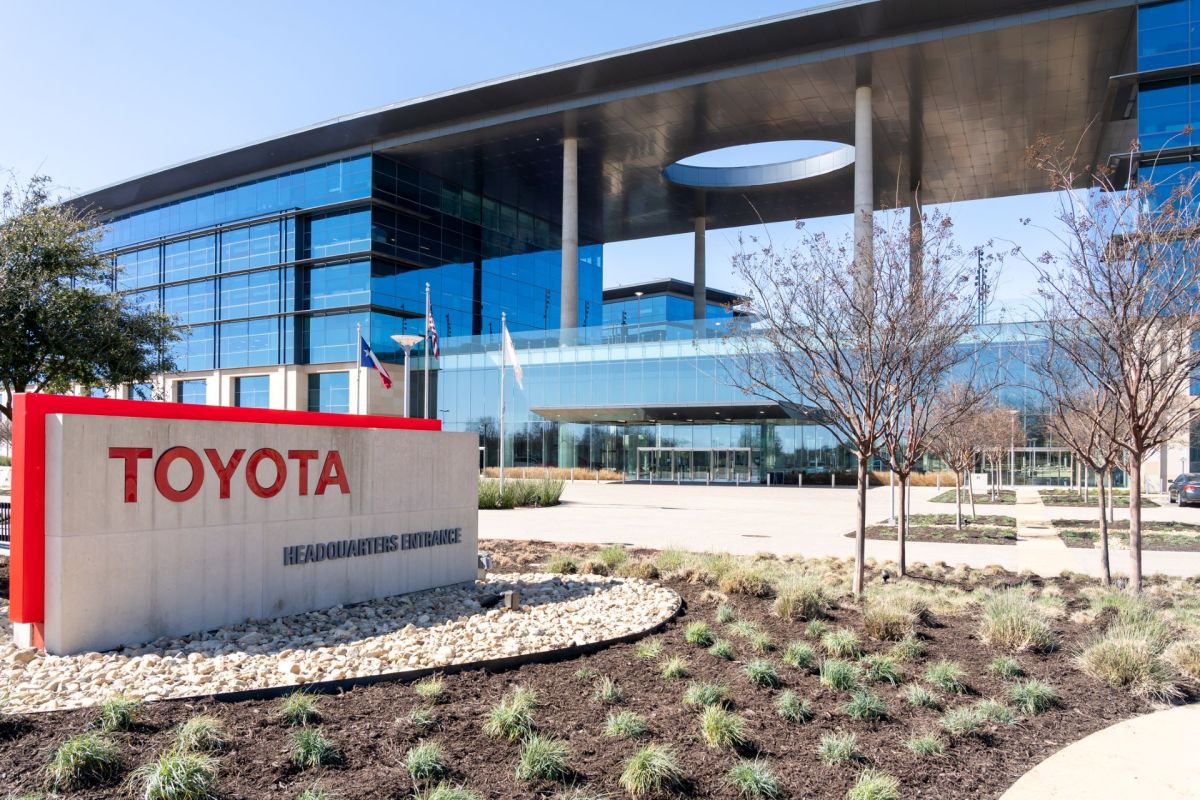Toyota unveiled plans for new electric vehicle battery technology that could offer up to 900 miles of driving range, and many are calling it a potential game-changer.
At a July briefing, the company announced big news about new solid-state EV battery tech. Saying it simplified production of the material used to make solid-state batteries, the company plans to roll out a model by 2025 that will extend cruising range by 20%.
A higher-performance version is still under research and development but has the potential to deliver 50% more cruising range — over 900 miles, according to Toyota. That could get you from New York to Chicago and then some, and charge time would be just 10 minutes.
Toyota had already made recent headlines by announcing it would have EVs with solid-state batteries on the market within the next few years.
Solid-state batteries (as opposed to lithium-ion batteries, which use a liquid electrolyte) are regarded as a potential turning point for EVs. They have the power to reduce charging times, increase capacity, and reduce fire risk.
The company will also offer two next-gen battery types in 2026 and 2027 — referred to as "performance" and "popularized."
The performance version will use the same battery chemistry as the bZ4X SUV but will offer 20% more driving range. Plus, it will cost 20% less. The popularized version will have the same gains in driving range but at a 40% cost reduction.
While solid-state batteries have been around for a while, there have been problems scaling up production to put them in mainstream EVs, the Guardian reports. Many companies have been working on the problem, including Porsche. One startup has even developed a way to 3D-print these batteries in different shapes and sizes.
However, according to the Guardian, Toyota claims it has made a breakthrough in solid-state battery manufacturing that will actually make this product easier to produce than lithium batteries.
Toyota's innovations in solid-state batteries are big news for the company and the planet. The new technology will save both time and money for consumers in the form of lower prices and less time at charging stations. Greater range will help absolve range anxiety for potential customers interested in EVs, making these cars more suitable for cross-country travel while charging infrastructure catches up.
This is great news for the planet as well. EVs contribute far fewer planet-warming gases to the atmosphere than traditional cars.
David Bailey, professor of business economics at the University of Birmingham, said this could be a pivotal moment in the development of electric cars — if Toyota can pull it off.
"Often there are breakthroughs at the prototype stage but then scaling it up is difficult," he told the Guardian. "If it is a genuine breakthrough it could be a game-changer, very much the holy grail of battery vehicles."
The company is aiming for mass production of its solid-state battery from 2027-2028. However, Electrek urged people not to get their hopes up, because Toyota has a history of lagging behind on its timelines.
Join our free newsletter for weekly updates on the coolest innovations improving our lives and saving our planet.









